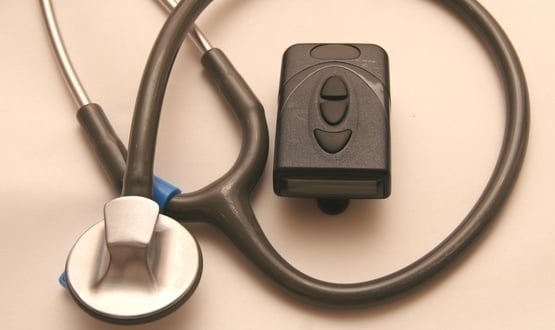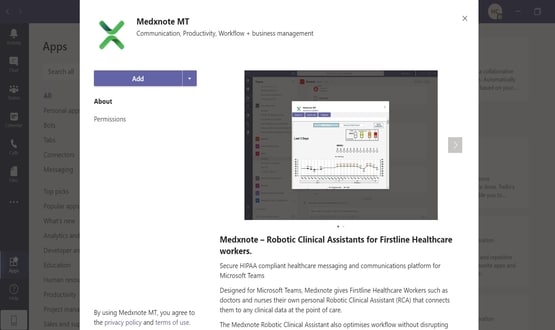Calls for BMA to oppose Hancock’s ‘ill-conceived’ ban on outdated tech
- 18 June 2019

Setting “arbitrary dates” to stop using outdated technology puts patients “at risk”, regional medical councils have said as they called on the BMA to oppose blanket policies.
Several motions are expected to be discussed at the British Medical Association’s annual representatives meeting (ARM), calling on NHS England, NHS Digital and individual trusts to collate the advantages and disadvantages of all communication methods currently used in the health service.
East Midlands Regional Council proposed a motion labelling secretary of state for health and social care, Matt Hancock’s, flagship Axe the Fax and Purge the Pager campaigns “premature and ill-conceived”.
The region is calling on the BMA to oppose the blanket policies until “feasible alternatives” are determined.
The Leicestershire and Rutland division and London Regional Council echo similar calls for communication technology to be upgraded in a “reliable, secure and effective manner”.
The motions “welcome” Hancock’s call to rid the NHS of old technology, but warn “clinically safe and appropriate alternatives” need to be found first.
Hancock’s war on outdated tech began in December 2018 with the Axe the Fax campaign to rid the NHS of fax machines. He banned trusts from purchasing new fax machines beyond January 2019, with a complete phase-out of the technology planned for April 2020.
In February this year the Purge the Pager campaign was announced, with NHS trusts required to phase out pagers by the end of 2021. All hospitals are expected to have plans and infrastructure in place to ensure this is possible by the end of September 2020.
Instead, staff are expected use modern alternatives, such as mobile phones and apps, which can deliver more accurate two-way communications at a reduced cost.
The BMA ARM agenda notes phone technology is “preferential” to pagers, but “devices should be provided by the NHS, and not dependent upon the vagaries of apps on personal phones”.
Members also call for fax technology not to be phased out until every clinician and provider or NHS services can use NHSmail to ensure clinical messages are shared on an encoded and integral system.
A spokesman for the Department of Health and Social Care said the Government was not imposing a blanket ban on pagers, adding they can still be used in emergency situations until a clinically said alternative is available.
“It is absolutely right the NHS replaces outdated technology such as fax machines and pagers with modern and safe alternatives, which allow clinicians to communicate with each other quickly and securely,” they said.
“NHSX will helps trusts harness the huge potential of technology to support hard-working staff deliver the cutting-edge care set out by the NHS Long Term Plan.”
The meeting will be held on June 27.
Sarah Bruce, co-founder and director of Silver Buck which handles marketing for the Axe the Fax campaign, said: “The initial Axe the Fax campaign, which was led by Leeds Teaching Hospitals NHS Trust with support from Silver Buck, began as a grassroots movement that encouraged NHS organisations to set their own timeline to phase out their machines.
“The intention of the Axe the Fax campaign was never about introducing hard deadlines that fail to take into account the unique situations of each organisation. Instead, we believe that putting decisions in the hands of healthcare organisations – with support and guidance from the centre – is the only workable way of enabling the NHS to meet such goals.”
In February it was revealed Leeds Teaching Hospitals NHS Trust had fallen short of its “challenging” target to remove 95% of its fax machines by January 1 this year and was now piloting an eFax programme.
Dr Sandeep Bansal, CEO and founder of Medic Creations – a company that offers an alternative to pagers – added: “I understand the BMA are reluctant to commit to such a deadline, as clinical safety is a vital element of digital transformation technology. However, I believe it is feasible to achieve.
“This is not about getting rid of old technology for old tech sake, this is about delivering even better patient care.”
It comes as Dr Barney Gilbert, a junior doctor and chief executive of instant messaging app Forward, exclusively told Digital Health that guidance issued on the use of instant message apps in the wake of WannaCry has been “more confusing than helpful”.
He claimed “very few” NHS workers would be aware of the guidance for using apps like WhatsApp to quickly share patient data, which are often used in favour of pagers.




4 Comments
There are some guidance and standards available, albeit not in one place at the moment:
Clinical Safety
https://digital.nhs.uk/services/solution-assurance/the-clinical-safety-team/clinical-safety-documentation#clinical-safety-guidance
Information Governance:
https://www.england.nhs.uk/ig/
NHS England as the Data Controller:
https://www.england.nhs.uk/contact-us/privacy-notice/nhs-england-as-a-data-controller/
Current guideline from NHS England around Im and governance:
https://digital.nhs.uk/data-and-information/looking-after-information/data-security-and-information-governance/information-governance-alliance-iga/information-governance-resources/information-governance-and-technology-resources#instant-messaging
What we have worked really hard on is collating all this information and really helping guide the way for how instant communication solutions will work on a BYOD policy from many different aspects.
Where many instant communication/messaging solutions fall over:
1) Doctors and nurses etc advised to download and utilise freely with patient identifiable data without NHS organisation having any governance or oversight of this. This then leads to complete lack of and protection for an NHS organisation and for their patients. A Ticking time bomb.
2) Clinical safety – if the Wifi is not robust enough in an organisation then who is to blame for a message not going through?
3) Business models: if a product or service is free so that patient data can be shared then there are two business models where the NHS will be held to ransom: professional data – selling that on to recruitment firms etc and worse still patient data – charging the NHS organisation to be able to get the patient data which of course belongs to the patient and is completely under guardianship of NHS organisations.
Many many more questions you should all be asking yourselves and of course happy to help answer these as we have worked really hard on solving all these challenges over the last 5 years.
Best wishes
Sandeep
Where fax machines are used as a means of communication between organisations with very different (and changing) tech situations, the *organisational* changes involved with “banning the Fax” in the absence of a widely used altrnative might well lead to ‘unintended consequences’.
In the case of pagers, the advantage is that they can be passed to different individuals who are functioning – temporarily – in a particular role, without the need for an elaborate system of recording who, at the moment of an emergency, is in that role until the next shift change. Is the idea that staff should use their own phones – which would need an elaborate, fallible, system to make sure the crash team was identifiable, or that dedicated mobiles would be passed around as though they were pagers?
I agree with the BMA motions: this needs a lot more thought..
For the Nth time Matt ‘Tech’s my middle name’ Hancock has crashed on without consulting the users, a la NPfIT mode. I am now fed up with saying ‘ fix the event processes and apply appropriate technology where needed’
As this is a national program one would hope that on this occasion “NHS England, NHS Digital and individual trusts HAD collateD the advantages and disadvantages of all communication methods currently used in the health service” as a precursor to the decision and that suitable alternatives were readily available and could be procured and deployed within the published timescales
Comments are closed.